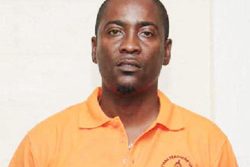Details are still being finalised to have COVID-19 samples sent to the United States for genetic sequencing in an effort to determine whether any variants of the virus are in Guyana.
This was stated by Minister of Health, Dr Frank Anthony, during yesterday’s COVID-19 update where he informed that since the last set of samples were sent to the Caribbean Public Health Agency (CARPHA) for sequencing, no other samples have been sent.
A COVID variant is wreaking havoc in neighbouring Brazil and there are concerns that it could have made its way here.
In February, Anthony had reported that CARPHA informed him that the samples which were sent for sequencing showed no traces of any of the new variants of the COVID-19 that have been circulating in other countries around the world.
During yesterday’s update, the minister said, “So CARPHA was offering genetic sequencing and we sent the first ten samples to them. When we received the results from those ten samples they didn’t find anything of significance.” He added that the agency subsequently suspended its operations and as such no other samples were sent to CARPHA.
“They have since notified us that they will be able to do some additional sequencing and once we put all the arrangements in place we will be able to send samples to them” the minister was quoted as saying.
He however mentioned that the ministry is also pursuing arrangements to have samples sent to the United States, for which the details are still being finalized. “We have been also pursuing another arrangement and that is to send samples to the United States but we are still trying to finalize those details of how to get the samples up to them.”
It was indicated that the samples that were sent to CARPHA show that the virus is the “regular” strain that has been circulating since December.
Meanwhile, the minister also noted that the only way to be able to find out what other variants of the virus could possibly be in the country, would be to have gene sequencing done. “We obviously know that there are several variants that have been in circulation in different parts of the world and they have various characteristics,” Anthony said.





